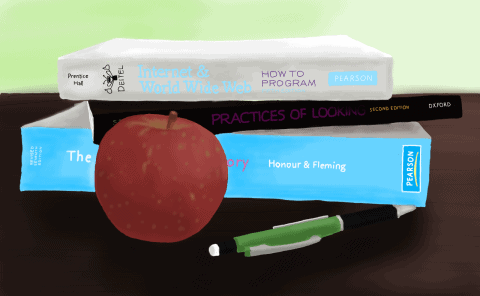NAFISA ISLAM
It’s midterm season at the University of Saskatchewan, and studying for tests can be a gruelling task. We all need something soothing to help us power through the stress and pressure and often, that thing is food.
Comfort foods, if chosen sensibly, can boost levels of serotonin — a brain chemical that contributes to feelings of contentment. However, some choices might increase adrenaline production and aggravate stress hormones, taking a toll on the body over time.
Although preferred comfort food varies from person to person, the foods that we associate with comfort or happy emotions seems to have a common trend.
In a recent informal poll conducted by the Sheaf on the U of S campus, students shared their favorite go-to study foods. The survey revealed that the most common choice is chocolate, with various types of potato chips coming in a close second.
Other items mentioned included popcorn, chicken nuggets, ice cream and pizza. Some had no choice at all, explaining that they found eating while studying distracting and preferred a soothing cup of tea or coffee instead for a quick pick-me-up. The convenience of these foods, their ability to provide quick bursts of energy and a sense of relief were given as the reason for students’ choices.
The poll exhibited that students have a tendency to gravitate towards foods that are considered “simple carbohydrates.” This is unsurprising because simple carbs are easily digestible, give you energy on  the spot and cause a spike in serotonin. However, they also leave our bloodstream very quickly, leading to a crash.
the spot and cause a spike in serotonin. However, they also leave our bloodstream very quickly, leading to a crash.
If you’re hoping to keep stress levels at a minimum while studying, steer clear of simple carbohydrates, which include sweets and soda. You should also enjoy coffee in moderation since it contains neuro-stimulators like caffeine and theobromine which — while they provide momentary alertness — are proven to heighten stress.
So what kind of food should you eat while studying? After all, there seem to be very few options that are relaxing, convenient and provide you with the sudden bursts of energy that simple carbohydrates do.
For a steady supply of focus, energy and a sense of calm, it’s best to eat complex carbohydrates because they take longer to digest. Good choices include stove-popped popcorn, whole grain crackers and carrot sticks. Oranges are another good option because of the amount of Vitamin C they contain. Studies suggest this vitamin can decrease cortisol, which is connected to stress in our bloodstream.
Almonds are a good source of the antioxidant Vitamin E and magnesium, which offer a more effective alternative to caffeine and sweets. They make you more alert and keep your brain working at top capacity without the crash afterwards. They also bolster your immune system to help make you resilient to stress.
If you aren’t nuts about almonds, you might prefer to go for some delicious protein-packed snacks such as a hard boiled egg, hummus with crackers or a glass of chocolate milk. Proteins work to stimulate orexin neurons, which are the cells in your brain responsible for keeping you awake.
Another great option instead of salty potato chips is filling up your snacking bowl with a bunch of fresh blueberries. If blueberries are off-season or too expensive, you can also enjoy them dried or frozen as an addition to a smoothie. Studies have shown that blueberries are able to increase concentration and memory for up to five hours due to their large amount of antioxidants. These powerful nutrients are able to stimulate blood and oxygen to the brain, which results in sharper focus.
It’s tough focusing when you have to read through endless 40-page chapters or condense weeks of class notes for a mammoth midterm. You may find yourself reaching for your favorite snack to make the experience bearable — after all, you’re only human. It’s difficult to break the habit and avoid the temptation of junk food, but in the end, changing your definition of comfort food can mean a huge boost in your health, mood and academic performance.
—
Image: Theresa Quagraine